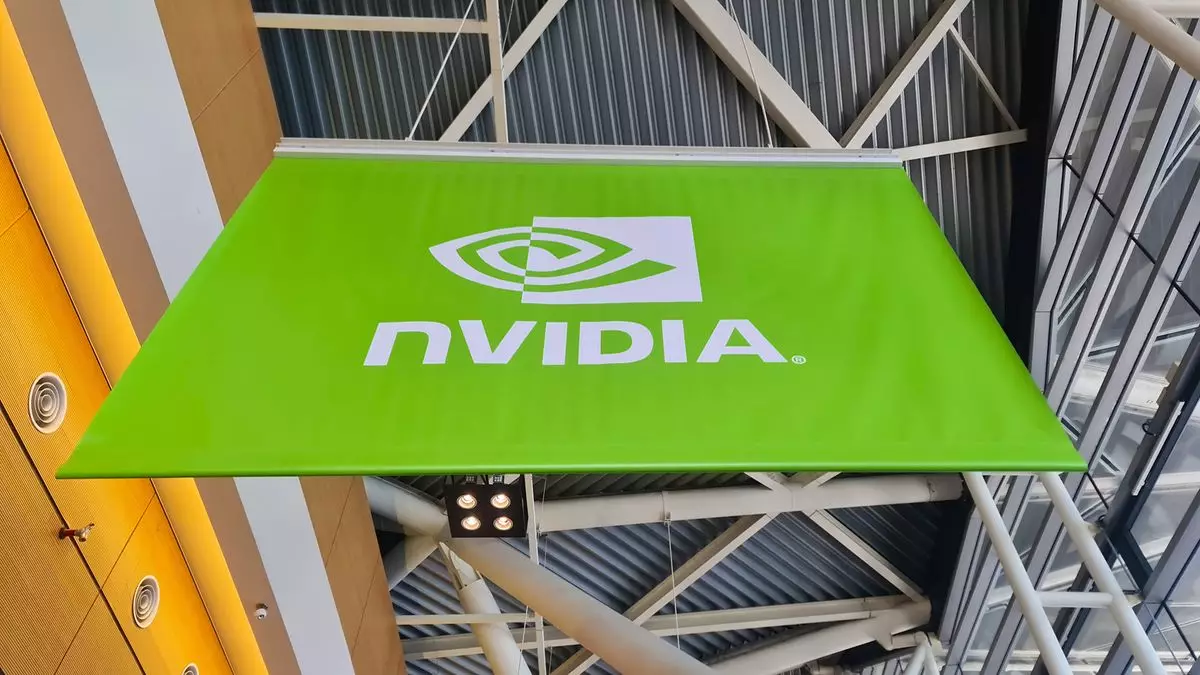In recent years, Nvidia has emerged as a dominant player in the semiconductor industry, largely due to its innovative graphics processing units (GPUs) that have become the gold standard in gaming and AI technologies. However, amid its success, legal challenges have arisen, particularly relating to the company’s disclosures concerning its financial dependency on the cryptocurrency market. A significant lawsuit, rooted in allegations of misleading investors, has resurfaced, prompting scrutiny from the U.S. Supreme Court. As Nvidia navigates this moment, it must grapple not only with the specific claims made against it but also the broader implications of accountability in the corporate sector.
The lawsuit in question dates back to 2018, when it was initially filed against Nvidia for purportedly downplaying the impact that crypto sales had on its revenue. As crypto mining surged, so did the demand for Nvidia’s GPUs, leading to a supply shortage that aggravated both customers and industry observers. The initial dismissal of the lawsuit in 2021 was later reversed by the Ninth Circuit Court of Appeals, underscoring the complexity and contentiousness of the case. The current question is whether the lawsuit meets the standards set forth by the 1995 Private Securities Litigation Reform Act, which aims to deter frivolous lawsuits while allowing legitimate grievances to be aired.
Nvidia seeks to dismiss the case on the grounds that the plaintiffs lack sufficient evidence to support their claims. This defense spotlights a pivotal challenge in corporate law: the balance between protecting companies from baseless claims and ensuring that investors have a viable path to seek accountability in cases of alleged fraud. A ruling in favor of Nvidia could set a precedent that complicates litigation for investors, particularly in cases involving novel technologies or rapidly evolving markets.
During the Supreme Court hearings, Justice Ketanji Brown Jackson raised an important concern regarding the evidence requirements for plaintiffs. She suggested that demanding substantial evidence at the outset may disadvantage those with legitimate claims who often lack access to detailed information until a lawsuit is underway. This dialogue epitomizes a fundamental tension within the legal system: the need for judicial efficiency versus the principles of fairness and accountability.
Nvidia’s argument hinges on the notion that the plaintiffs must present a stronger case before a lawsuit can proceed, shifting the burden of proof away from the company. In contrast, the plaintiffs maintain that the litigation process is designed to unveil the evidence necessary to substantiate their claims, which typically occurs after preliminary considerations are resolved. The Supreme Court’s deliberation on this matter is crucial not only for Nvidia but for the landscape of corporate governance as a whole.
The outcome of this case carries significant weight beyond Nvidia. It represents a potential shift in how courts handle securities fraud cases, particularly regarding the thresholds for evidence required to initiate litigation. If Nvidia prevails, it may discourage private litigation against large corporations, thereby complicating the ability of investors to hold firms accountable for misleading practices. Conversely, if the plaintiffs prevail, it could empower investors and reassure them that they have a legitimate avenue to address grievances, fostering a more transparent corporate environment.
Moreover, the pervasive influence of tech giants like Nvidia raises questions about corporate responsibility in burgeoning markets. As the cryptocurrency sector continues to evolve, companies engaged in this space must be diligent in their disclosures and transparency, particularly given the volatile nature of digital currencies and their ramifications on traditional business models.
The motivations behind the continuation of the 2018 lawsuit also warrant examination. It is worth speculating whether the plaintiffs are indeed investors who experienced losses or whether they are opportunistic litigants seeking recourse in light of the boom in Nvidia’s stock value post-lawsuit. The question remains: what prompts individuals to pursue litigation long after the initial grievances? It is possible that those who felt left out during the crypto gold rush are now seeking to leverage their past experiences for personal gain.
As Nvidia continues to thrive, bolstered by a strong market demand for GPUs across various sectors, the importance of corporate accountability will remain a pertinent topic. Stakeholders, including investors, customers, and regulators, will be watching closely as the courts decide not just the fate of Nvidia in this case, but also the broader implications for transparency and responsibility among publicly traded companies. Ultimately, the balance struck by the courts will reflect a society grappling with:
– The relentless pace of technological advancement,
– The ethical responsibilities of corporations,
– The fundamental rights of investors.


Leave a Reply